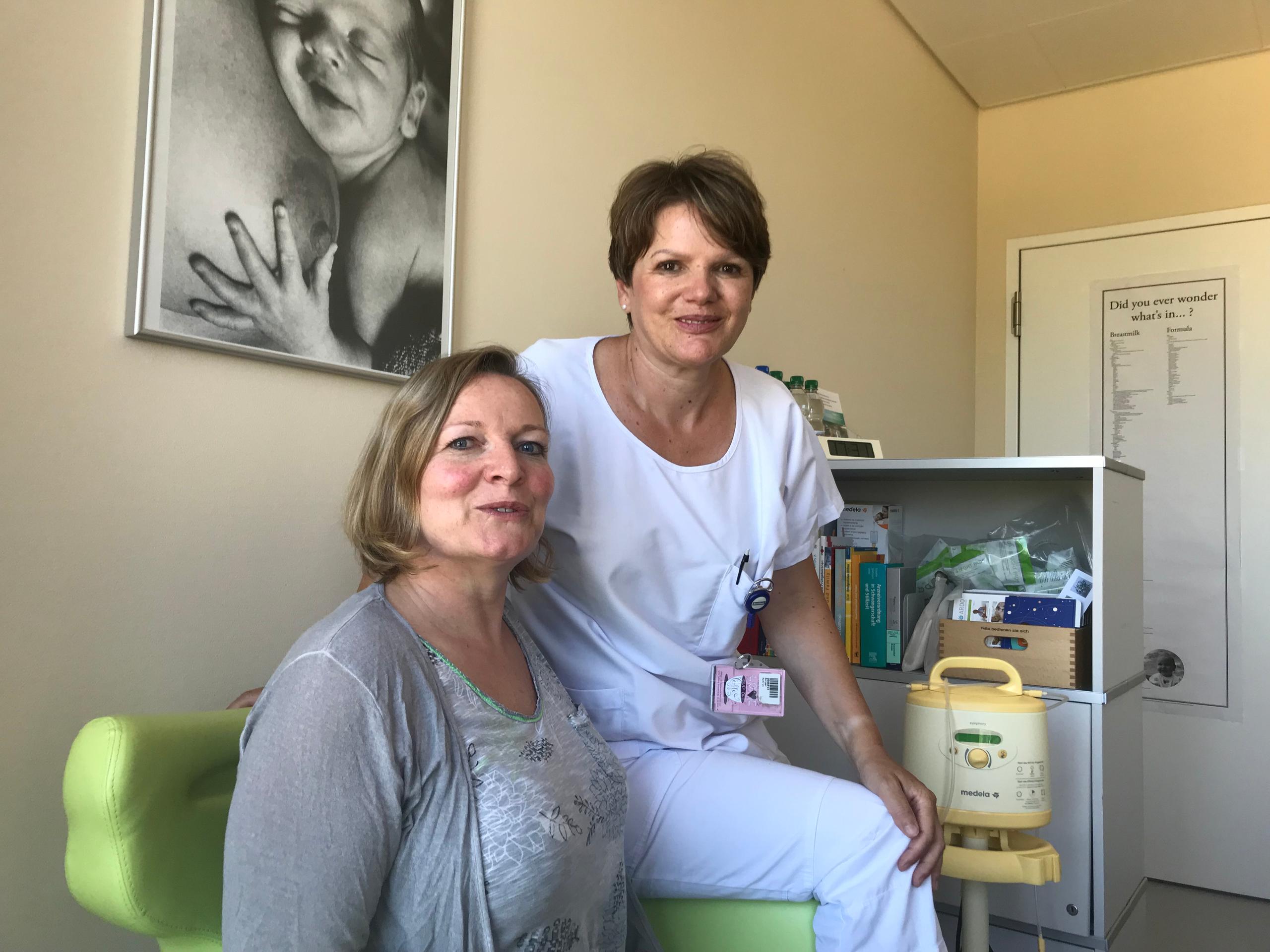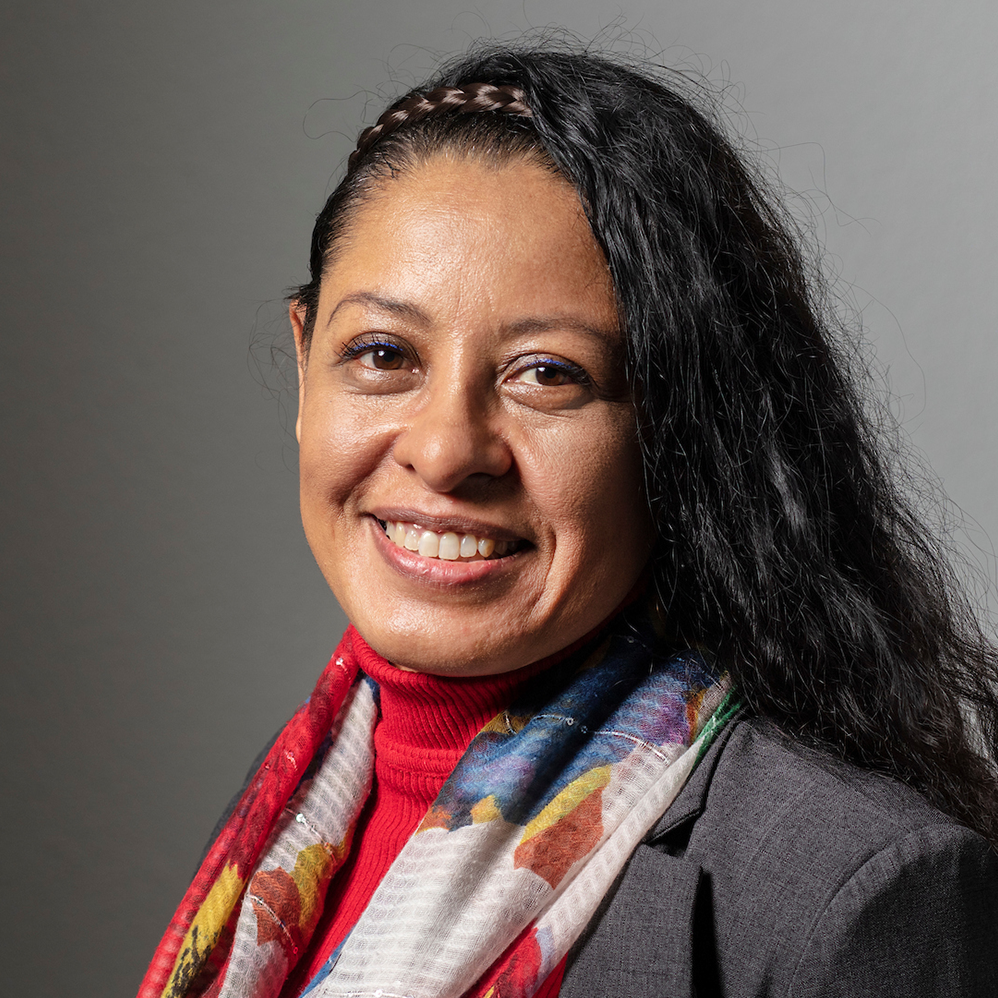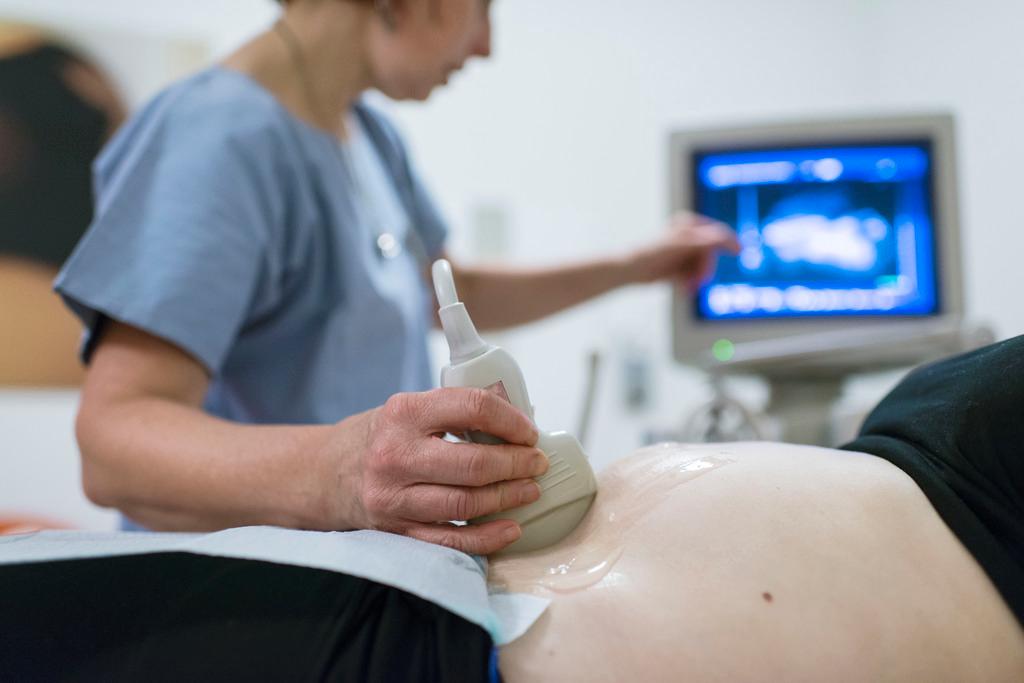Breastfeeding in Switzerland: myths vs realities

Some 95% of mothers breastfeed their newborns in Switzerland. But there are still many prejudices over if and how you should breastfeed. swissinfo.ch spoke to two experts to gain a bigger picture.
Katrin Berger and Margrit Hagen are certified breastfeeding consultants and work at the Women’s Hospital of the University Hospital of BernExternal link (Inselspital). They are also midwives with more than 30 years of professional experience. They have first-hand knowledge of the feelings, thoughts and worries of mothers when it comes to feeding their newborns.
Their experience has also helped them in their work as auditors for the Baby-Friendly HospitalsExternal link label. This defines quality criteria as drawn up by the World Health Organization (WHOExternal link) and the United Nations Children’s Fund (UNICEFExternal link) for breastfeeding. There are now 27 hospitals in Switzerland using this label.
swissinfo.ch: How does Switzerland comply with UN recommendations on the promotion of breastfeeding?
Katrin Berger: 95% of mothers breastfeed their children in the first few days of their livesExternal link. In 1992, UNICEF and WHO introduced the Baby-Friendly Hospitals certification. In Switzerland, this was met with an open mind.
Not all maternity wards have the goal of obtaining certification – mainly because of the costs [around CHF10,000 or $10,000]. But most of them follow the UN’s “Ten Steps to Successful BreastfeedingExternal link”. In addition, compulsory health insurance covers the costs of three breastfeeding consultations. This also has a positive effect on breastfeeding.
swissinfo.ch: What is the average duration of breastfeeding in Switzerland?
Margrit Hagen: According to a studyExternal link published in 2014, it’s 31 weeks. In Switzerland, as in other industrialised countries, mothers with a higher level of education breastfeed their children for longer. The opposite happens in developing countries.
swissinfo.ch: Why do mothers need breastfeeding advice in Switzerland?
K.B.: Society has changed. In the past, knowledge about breastfeeding in the family was passed on among sisters. The age gap between generations was also not so pronounced.
Today we tend to be more isolated. You see fewer breastfeeding mothers in public places. So some mothers will seek professional advice. Breastfeeding is a learning process that takes time.
swissinfo.ch: Are there any topics in breastfeeding counselling that crop up again and again?
M.H.: Recurring topics include pain during breastfeeding, sore nipples, milk congestion, mastitis, fear of too much or too little milk, partial breastfeeding, weaning, breastfeeding rhythm, manual or mechanical pumping.
swissinfo.ch: In social networks, mothers ask for “good” breastfeeding consultants. What are they looking for?
K.B.: Mothers are looking for answers to their individual needs and above all to know that they are not forced to breastfeed. A good counsellor supports a mother who does not want to breastfeed.
A good counsellor supports a mother who does not want to breastfeed. Katrin Berger, breastfeeding counsellor
Our work essentially consists of supporting what the woman wants and the baby’s needs, while strengthening their relationship and promoting their well-being. We also point out that there are no ‘black or white’ solutions, but in-between options.
It is about providing the correct information for each individual case. In this way, every mother can make an informed decision, free of the myths.
swissinfo.ch: So there are still myths surrounding breastfeeding in Switzerland?
M.H.: Yes, in certain family environments there are still remarks that can unsettle mothers. For example, that her milk is not good, that the baby is losing weight and that the mother should give the baby milk powder. Or that the mother will ruin her breasts by breastfeeding.
Many mothers also believe that breastfeeding is an inherited ability. They say: ‘My mother couldn’t breastfeed, so I can’t.’ Certain anatomical features can be an obstacle, but there are often solutions. Some women also believe that they have to stop breastfeeding if they have a breast infection or are taking medication. That is not true.
swissinfo.ch: Are science and society interested in breastfeeding?
K.B.: In the past, science was not interested in breastfeeding. The first findings about breastfeeding came from veterinary medicine, for example, how to treat a breast infection. So we really had the first findings that were applicable to humans.
Today we have research and education, but no real interest in society about breastfeeding as a social contribution rather than a burden.
swissinfo.ch: Since 2014, Switzerland has had a law that allows breastfeeding during working hours.
M.H.: Yes, the possibility of breastfeeding during work hours exists on paper, but in practice Switzerland is still in its infancy. As for breastfeeding in public places – forget it.
The possibility of breastfeeding during work hours exists on paper, but in practice Switzerland is still in its infancy.
Margrit Hagen, breastfeeding counsellor
Images of uncovered breasts are still predominantly a sexual symbol, and not considered a source of life or food. And with an inflexible society that covets independence, weaning often occurs quickly.
In general, a woman cannot imagine pumping her milk at work and giving it to her child later or talking to her bosses about breastfeeding when she returns to work.
swissinfo.ch: Have we forgotten about the nutritional function of the breast?
K.B.: Breastfeeding has always been an intimate affair, although we believe that the role of women in public life has changed. What value does breastfeeding a baby have in society? Breastfeeding is no longer seen as an act in harmony with our species.
We believe that something has been lost in our collective image of the human breast. Our desire is for people to become aware that breast milk is man’s first food and that women can spend more time with their babies, not only in the first 14 weeks of maternity leave.
Breastfeeding in the workplace
LegislationExternal link has been in force since 2014 that lays down the right to breastfeed during working hours until the child is one year old. The law has been the subject of heated debate in business circles.
Mothers can pump milk or breast-feed babies inside or outside the workplace, at home or at nursery.
Paid breastfeeding breaks are limited according to the length of the working day – paid breaks of between 30 and 90 minutes are allowed depending on the number of hours worked in the day.

In compliance with the JTI standards
More: SWI swissinfo.ch certified by the Journalism Trust Initiative





You can find an overview of ongoing debates with our journalists here. Please join us!
If you want to start a conversation about a topic raised in this article or want to report factual errors, email us at english@swissinfo.ch.